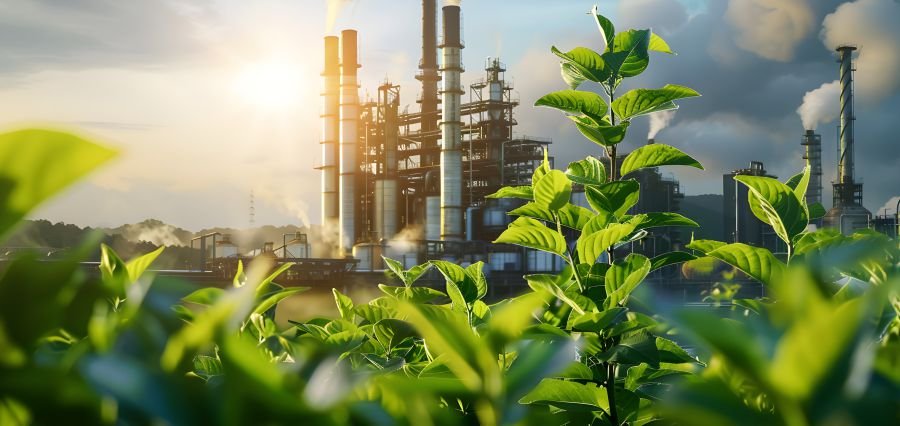The dawn of the 21st century has witnessed a paradigm shift towards sustainability, marking the advent of green industry. This transformative movement integrates environmental responsibility with economic viability, paving the way for sustainable practices that safeguard our planet while promoting prosperity. As industries across the globe strive to minimize their environmental footprint, the green industry stands as a beacon of innovation, driving forward-thinking practices that ensure a balance between human activities and ecological preservation.
The Rise of the Green Industry
The green industry encompasses a broad spectrum of sectors, including renewable energy, sustainable agriculture, green building, waste management, and eco-friendly manufacturing. The impetus for this shift stems from a growing awareness of climate change, resource depletion, and environmental degradation. Governments, businesses, and consumers are increasingly recognizing the need for sustainable practices to mitigate these issues and secure a healthier future for coming generations.
Renewable Energy: Powering the Future
At the heart of the green industry lies renewable energy, which has emerged as a crucial component in reducing greenhouse gas emissions and combating climate change. Solar, wind, hydro, and geothermal energy sources are not only abundant but also offer a cleaner alternative to fossil fuels. Technological advancements have significantly lowered the cost of renewable energy, making it more accessible and economically viable. Nations worldwide are investing in renewable infrastructure, setting ambitious targets to transition to green energy, and creating jobs in the burgeoning renewable sector.
Sustainable Agriculture: Feeding the World Responsibly
Agriculture, a cornerstone of human civilization, is undergoing a green revolution. Sustainable farming practices aim to produce food while conserving natural resources, maintaining soil health, and reducing carbon emissions. Techniques such as crop rotation, organic farming, agroforestry, and precision agriculture are gaining traction. These methods not only enhance food security but also promote biodiversity and resilience against climate extremes. Moreover, the adoption of plant-based diets and sustainable sourcing are reshaping food systems towards greater sustainability.
Green Building: Constructing with a Conscience
The construction industry is a significant contributor to environmental impact, accounting for substantial energy consumption and waste generation. Green building practices are revolutionizing this sector by emphasizing energy efficiency, sustainable materials, and innovative design. LEED (Leadership in Energy and Environmental Design) certification and similar standards are setting benchmarks for eco-friendly construction. Buildings that incorporate renewable energy systems, green roofs, water-efficient fixtures, and recycled materials are becoming more common, reflecting a shift towards constructing with a conscience.
Waste Management: Turning Trash into Treasure
Effective waste management is critical for minimizing the environmental footprint of industrial and consumer activities. The green industry promotes the principles of reduce, reuse, and recycle, transforming waste into valuable resources. Circular economy models, where products and materials are kept in use for as long as possible, are being adopted by forward-thinking companies. Innovations in waste-to-energy technologies and biodegradable materials are further advancing sustainable waste management practices, reducing landfill burden and pollution.
Eco-friendly Manufacturing: Redefining Production Processes
Manufacturing is a pivotal area where sustainable practices can yield significant environmental benefits. Eco-friendly manufacturing focuses on reducing energy consumption, minimizing waste, and lowering emissions throughout the production process. This involves the use of renewable energy, efficient machinery, and sustainable supply chains. Companies are increasingly adopting green manufacturing principles, such as lean manufacturing and life cycle assessment, to enhance efficiency and sustainability. By prioritizing eco-friendly production, the green industry is redefining manufacturing for a sustainable future.
The Role of Technology and Innovation
Technological advancements are integral to the success of the green industry. Innovations in clean energy, sustainable materials, and environmental monitoring are driving progress. The Internet of Things (IoT), artificial intelligence (AI), and big data analytics are enabling more efficient resource management and decision-making. For instance, smart grids optimize energy distribution, while AI-powered systems improve agricultural productivity and reduce waste. Continued investment in research and development is essential for fostering innovation and accelerating the adoption of sustainable practices.
Policy and Collaboration: Catalysts for Change
Government policies and international collaborations play a crucial role in advancing the green industry. Regulatory frameworks, subsidies, and incentives encourage businesses to adopt sustainable practices. International agreements, such as the Paris Agreement, set targets for reducing carbon emissions and promoting renewable energy. Public-private partnerships and collaborations between industries, academia, and non-governmental organizations are fostering knowledge sharing and innovation. Collective efforts are essential for overcoming challenges and driving the transition towards a sustainable future.
Conclusion: Embracing a Sustainable Future
The green industry represents a transformative approach to economic development that prioritizes environmental stewardship and social responsibility. As we navigate the complexities of the 21st century, sustainable practices are not merely an option but a necessity. By embracing renewable energy, sustainable agriculture, green building, waste management, and eco-friendly manufacturing, we can pave the way for a greener, more resilient future. The synergy of technology, innovation, policy, and collaboration will be instrumental in realizing the vision of a sustainable world. The green industry is not just a trend; it is the blueprint for a thriving planet where prosperity and sustainability go hand in hand.





